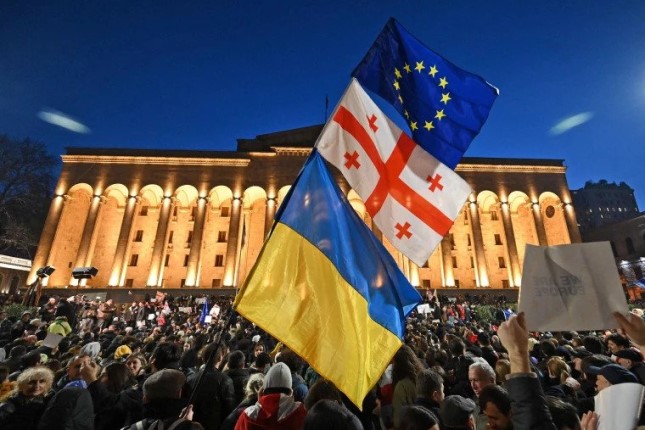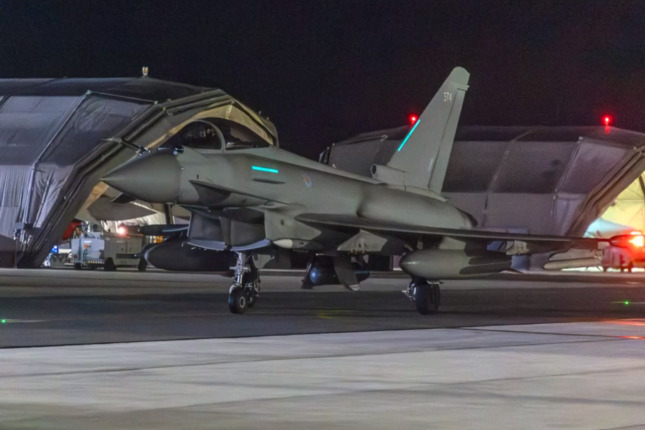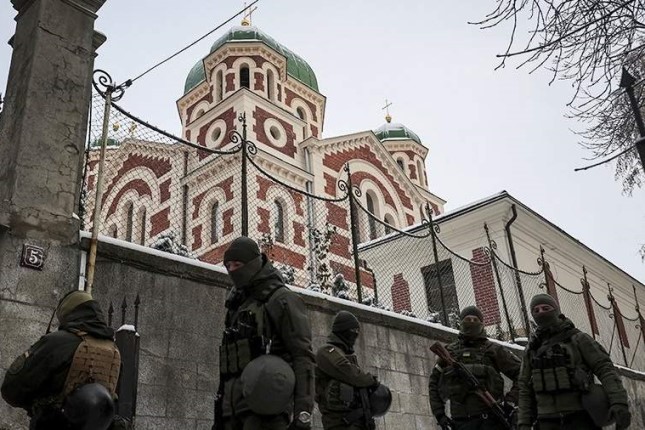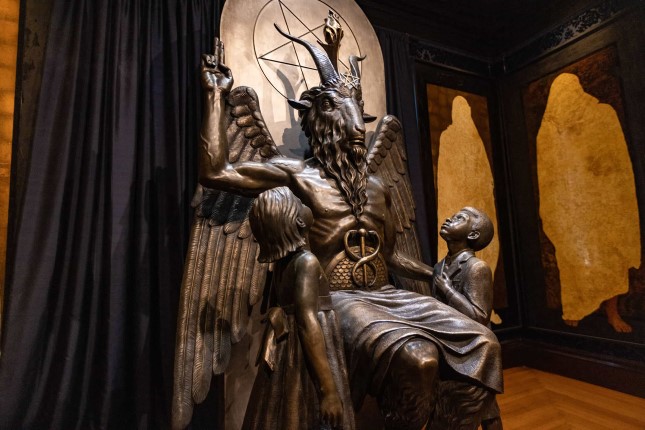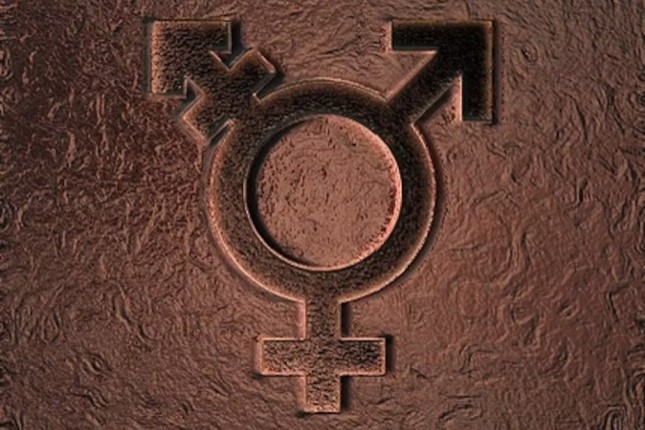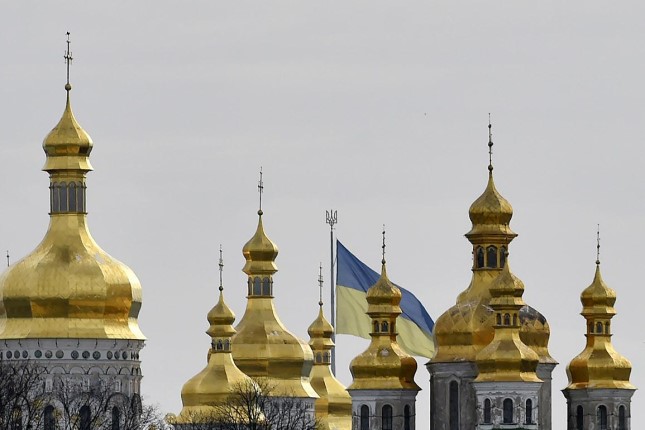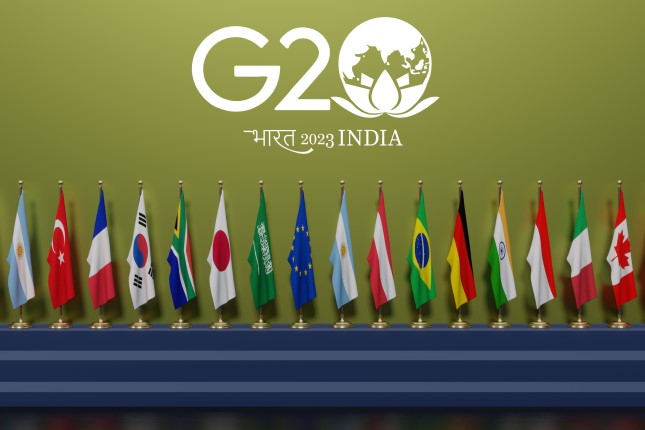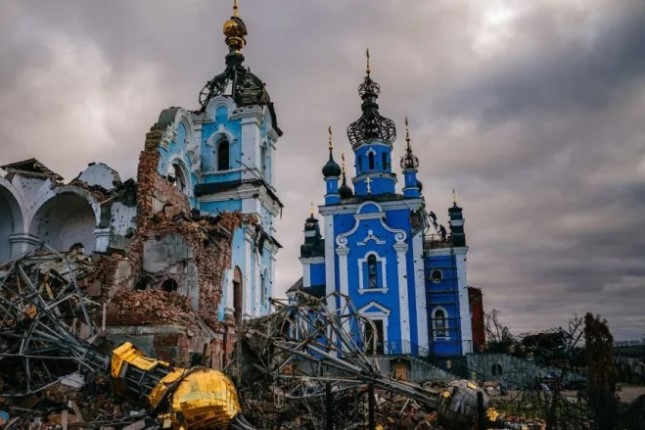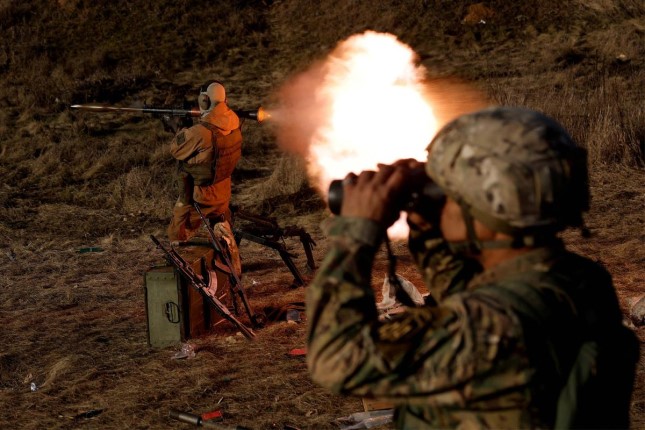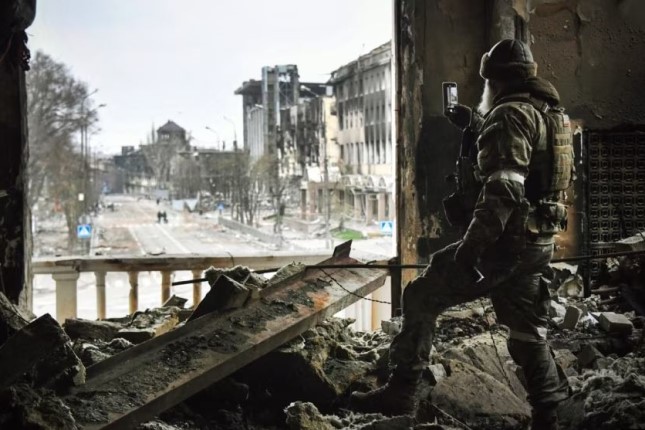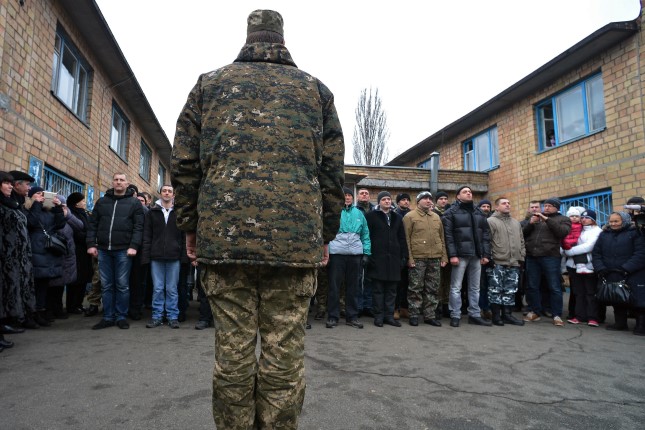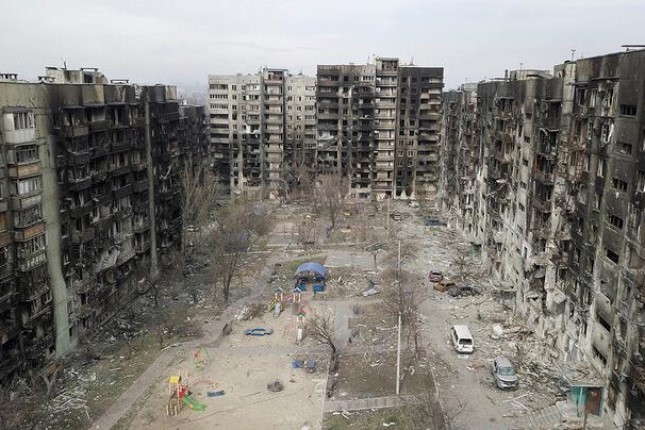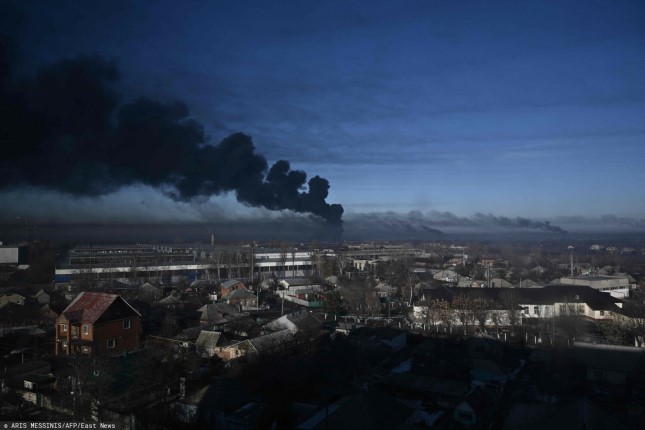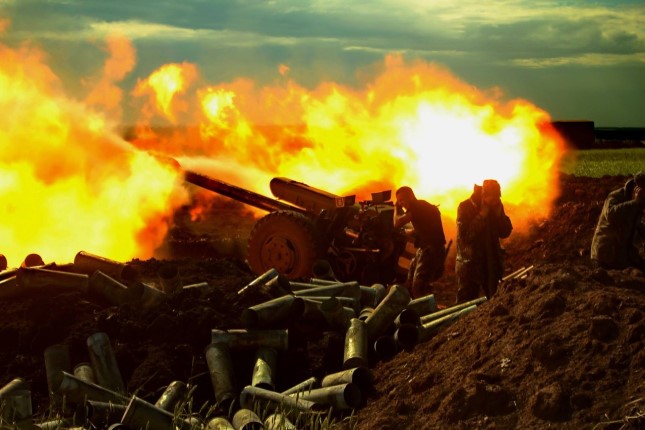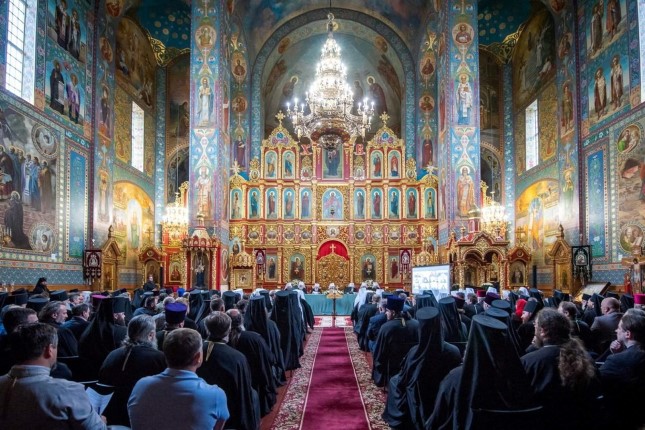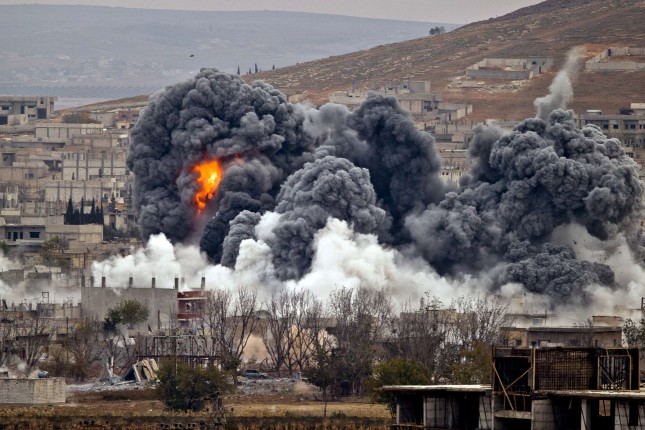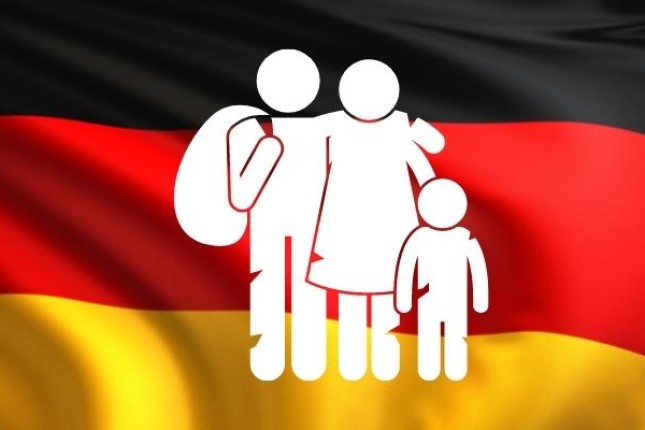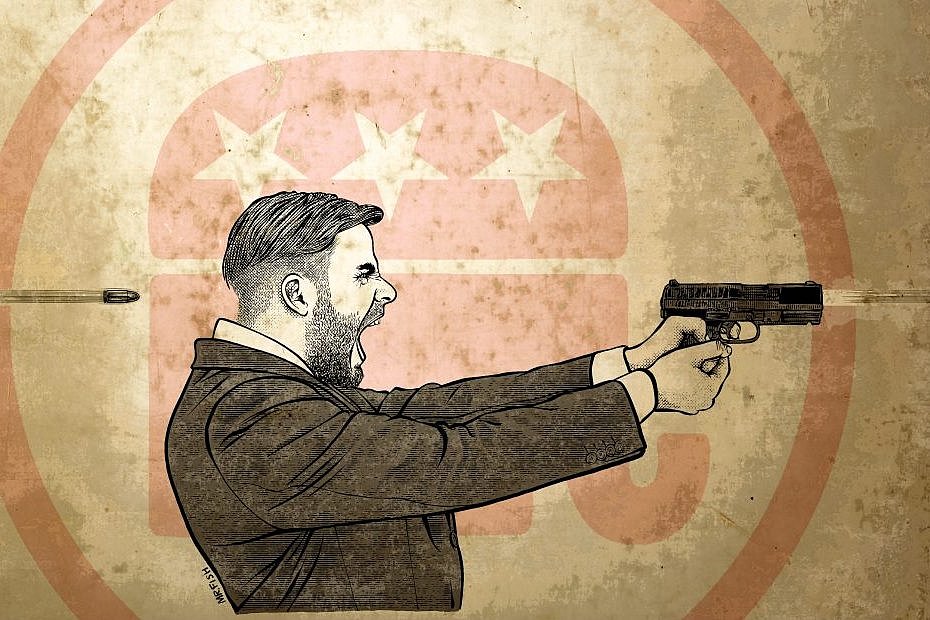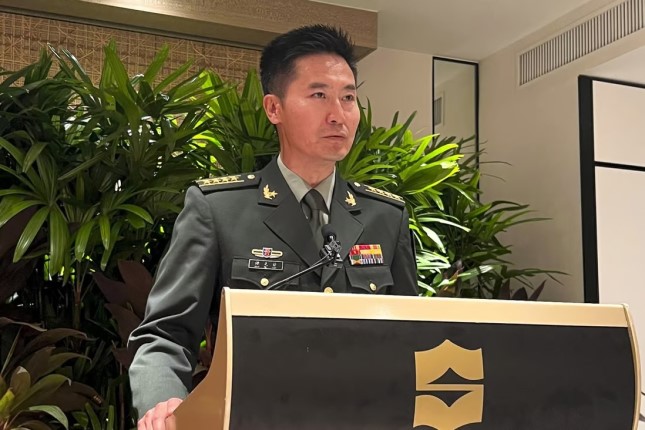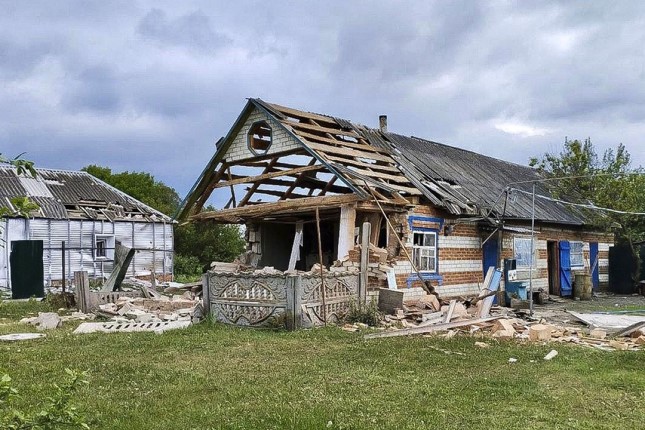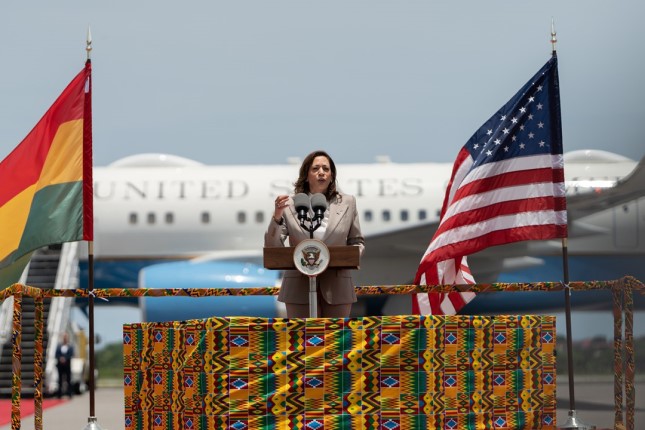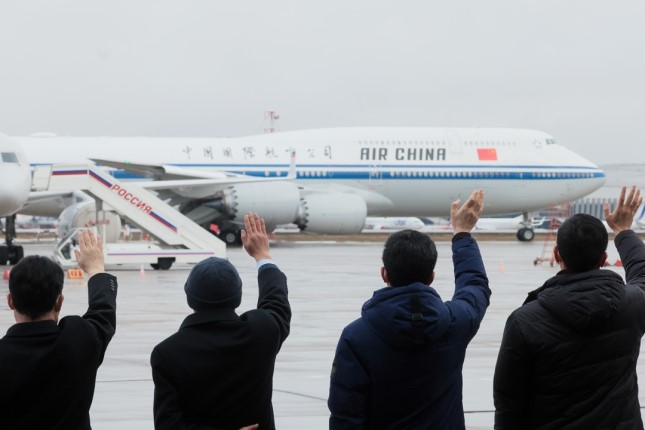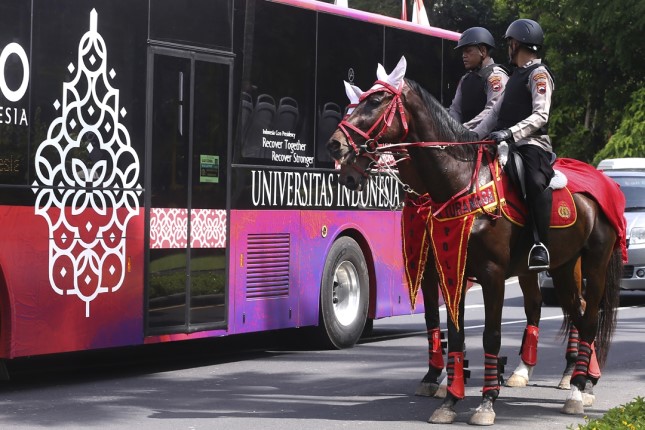In early March, protests began in the Georgian capital, which escalated into large-scale clashes with the police. Street demonstrators demanded the abolition of a "foreign agents" law initiated in the country's parliament. The law was a copy of a similar US law and required non-governmental organizations, the media and individuals to report funding from abroad.
The protesters who stormed the parliament were actively supported by Georgia's Western partners in the US and the EU, pointing out "the inadmissibility of violating the norms of democracy." As a result of several days of clashes and attempts to storm the parliament building, the government and deputies from the ruling party capitulated.
The discussion of the law was stopped, the document was withdrawn from Parliament, those detained for riots and throwing Molotov cocktails at the police were released. However, the protests did not end there.
Sensing weakness, the protesters demanded the resignation of the government and early parliamentary elections, as well as the return of the lost territory of Abkhazia. The fall of the power of the "Georgian Dream" will lead to the collapse of the socio-economic situation in Georgia, the opening of a second front against Russia and problems for the "refugees from the Putin regime" who have settled in the country.
Despite accusations from street opposition activists, the ruling Georgian Dream party has never been pro-Russian. For ten years, it has steadily followed the West agenda − implementing Western values, restoring territorial integrity (meaning the return of South Ossetia and Abkhazia recognized by Russia as independent states) and entry into the European Union and NATO.
Relations between Tbilisi and Moscow remained more than restrained; the states do not even have diplomatic relations. However, Georgia maintained critical trade and economic ties. Realizing a completely pro-Western course, the only thing that Georgia resisted was attempts to involve it in a conflict with Russia.
Official Tbilisi refused to supply Ukraine with military equipment and even Ukrainian air defence systems deployed on Georgian territory. Moreover, Georgian-Ukrainian relations damaged due to official Kyiv's support for the radical opposition in Georgia in the person of former President Mikheil Saakashvili, who illegally arrived from Ukraine to make a revolution and ended up in a Tbilisi prison.
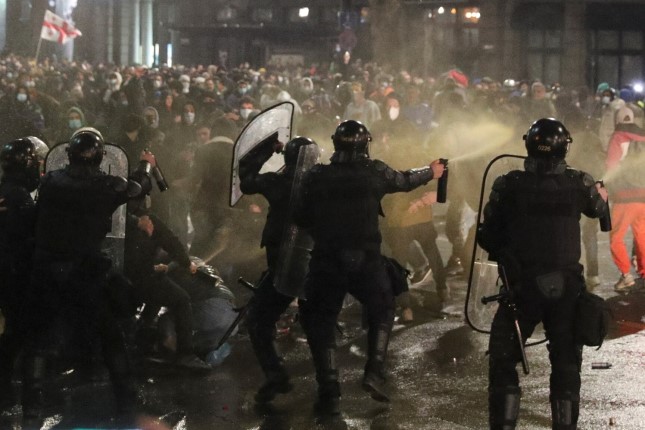
The Georgian leadership did not even make harsh statements against Moscow − the authorities strictly followed the publicly declared line of non-intervention. Despite the strongest pressure, Georgia refused to join any economic sanctions against Russia.
This policy has resulted in impressive economic growth. According to the International Monetary Fund (IMF), economic growth in 2022 will be about 10%. Drivers of growth are the increased volumes of trade with Russia, money transfers from Russia and the relocation of more than 100 thousand Russians to the country last year, many of whom transferred their businesses to Georgia or opened new ones here. Russians have opened more than 60,000 bank accounts in the republic. Revenues from tourism from Russia and imports of Russian goods for the year amounted to about USD 2.5 billion, almost three times more than the same indicator a year earlier.
The coming to power of a nationalist government that implements the European and NATO agenda in relation to Moscow will completely change this situation. Joining the sanctions and freezing trade with Russia will deteriorate the country's economy and social situation.
And the attempt to take advantage of Moscow's problems in Ukraine and open a second front, striking at South Ossetia and Abkhazia, where Russia locates its military bases, will lead to war and the rapid collapse of Georgia's statehood. A hundred thousand Russians in Georgia will find themselves in a very difficult situation close to that of hostages, and after breaking with Russia, they will also lose means of subsistence. The attitude towards them in rather nationalistic Georgian society is already negative and wary.
The arrival of over a hundred thousand people led to a twofold increase in the cost of house renting. In the event of a war against Russia for the return of territory, they will turn out to be internal enemies at all, and many (who succeed) will have to flee the country. But there are very few options − to neighbouring Armenia or Turkey, where "Georgian history" is likely to repeat itself, or to "Putin's Russia", which they fled in a hurry a year ago to escape the partial mobilization.
